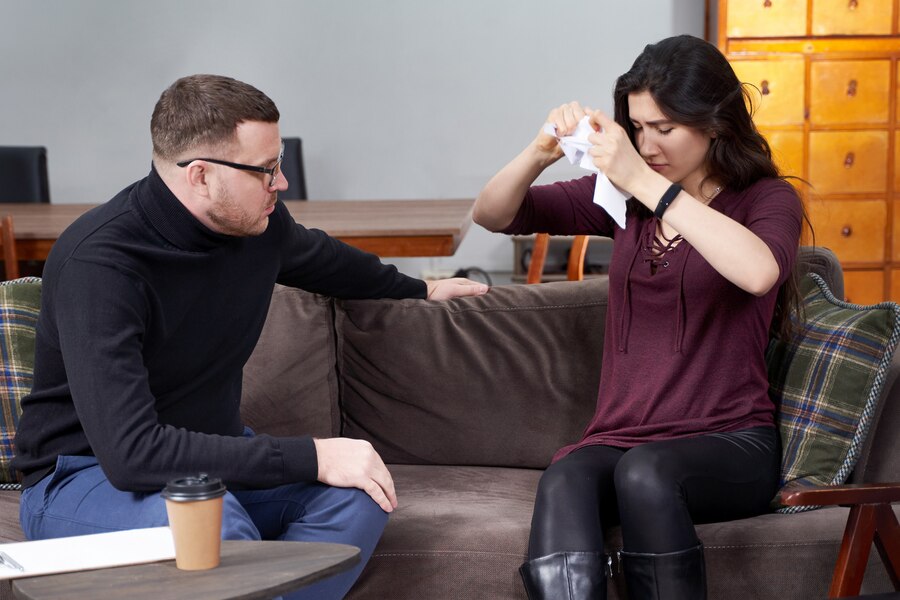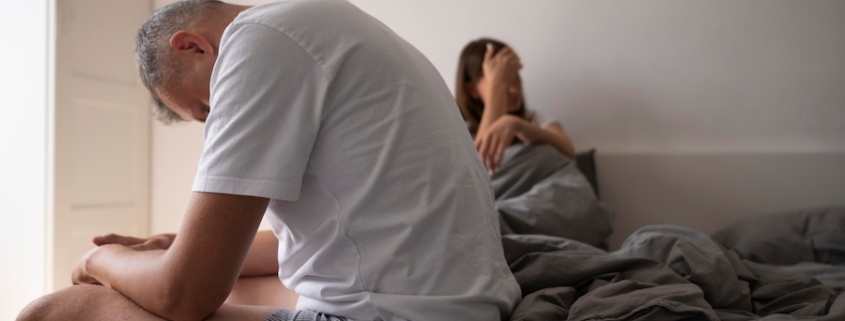Alcohol addiction is a significant and complex issue that affects individuals and their families in profound ways. Effective treatment for alcohol addiction is essential to achieving and maintaining sobriety. In Orange County, CA, various treatment options are available, designed to meet the unique needs of individuals struggling with alcohol dependence. At Couples Rehabs, we are committed to providing tailored solutions that support recovery and promote long-term health.
Overview of Alcohol Addiction and Its Impact
Alcohol addiction, also known as alcoholism, is characterized by a strong and often uncontrollable craving for alcohol despite adverse consequences. This condition can lead to a range of physical, emotional, and social problems, including liver disease, mental health issues, and strained relationships. Understanding the impact of alcohol addiction is crucial for addressing the issue effectively and developing a comprehensive treatment plan.
Inpatient Alcohol Rehab Programs: Intensive and Immersive Care
Inpatient rehab programs offer a highly structured and immersive treatment environment where individuals reside at the facility for the duration of their treatment. This approach provides intensive care and support, including medical supervision, therapy, and counseling. Inpatient programs are ideal for those with severe addiction or those who need a focused setting to break free from the cycle of alcohol abuse. These programs help individuals develop coping strategies, address underlying issues, and build a strong foundation for long-term recovery.
Outpatient Alcohol Rehab Programs: Balancing Treatment and Daily Life
Outpatient rehab programs offer a flexible approach, allowing individuals to attend therapy and counseling sessions while continuing to live at home. This type of program is suitable for those with a stable home environment and a strong support system. Outpatient treatment provides essential care while enabling individuals to maintain their daily responsibilities, such as work or school. It allows for a balanced approach to treatment, combining professional support with the ability to manage daily life.
Detoxification for Alcohol Addiction: The Initial Step
Detoxification is often the first step in alcohol addiction treatment and involves the medically supervised process of removing alcohol from the body. This phase is crucial for managing withdrawal symptoms and ensuring a safe transition into further treatment. Detoxification helps stabilize individuals physically and prepares them for the next stages of recovery. Effective detox programs provide support and care to address the challenges of withdrawal and lay the groundwork for successful ongoing treatment.
Evidence-Based Therapies for Alcohol Addiction
Evidence-based therapies are central to effective alcohol addiction treatment and are supported by scientific research demonstrating their efficacy. Common therapies used in Orange County include Cognitive-Behavioral Therapy (CBT), Motivational Interviewing (MI), and Contingency Management (CM). These therapies help individuals understand and change their behaviors, develop coping strategies, and stay motivated throughout the recovery process. Evidence-based approaches ensure that treatment is grounded in proven methods that support lasting recovery.

Holistic and Complementary Therapies in Alcohol Treatment
Holistic and complementary therapies address the whole person, not just the addiction. These therapies may include practices such as yoga, meditation, acupuncture, and nutritional counseling. By integrating these approaches, individuals can improve their overall well-being, manage stress, and support their recovery process. Holistic therapies complement traditional treatment methods, offering a more comprehensive approach to alcohol addiction recovery.
Dual Diagnosis Treatment for Co-Occurring Mental Health Issues
Dual diagnosis treatment is essential for individuals who experience alcohol addiction alongside co-occurring mental health disorders, such as depression or anxiety. This integrated approach addresses both issues simultaneously, providing coordinated care that improves the chances of successful recovery. Specialized programs in Orange County focus on treating both alcohol dependence and mental health conditions, helping individuals achieve better overall outcomes.
Specialized Programs for Different Stages of Alcohol Addiction
Specialized programs cater to various stages of alcohol addiction, from early intervention to long-term recovery. These programs are designed to address the unique needs and challenges associated with each stage of addiction. Whether it’s a program focused on initial treatment or ongoing support, specialized programs ensure that individuals receive the appropriate care based on their level of need and progress in recovery.
The Role of Aftercare in Maintaining Sobriety
Aftercare plays a crucial role in maintaining sobriety after completing an initial treatment program. This phase includes ongoing support, counseling, and resources to help individuals transition back into their daily lives. Effective aftercare programs offer continued guidance, help manage triggers, and provide a supportive network to prevent relapse. By focusing on long-term recovery, aftercare ensures that individuals have the tools and support needed to sustain their sobriety.
Involving Family and Support Systems in Alcohol Recovery
Family and support systems play a vital role in the alcohol recovery process. Involving loved ones in treatment can strengthen relationships, provide emotional support, and create a positive environment for recovery. Family therapy and support group participation help address dynamics and build a strong network to support ongoing sobriety. Engaging family and support systems fosters a collaborative approach to recovery, enhancing the chances of long-term success.
How to Choose the Best Alcohol Rehab Center in Orange County
Choosing the right alcohol rehab center involves evaluating various factors, such as the center’s approach to treatment, staff qualifications, available programs, and success rates. It is important to consider personal needs, preferences, and any specific requirements related to alcohol dependence or co-occurring issues. Researching and visiting different centers can help individuals make an informed decision about the best fit for their recovery journey.
Finding Effective Alcohol Addiction Treatment in Orange County
Finding effective alcohol addiction treatment is a critical step towards recovery and a healthier life. At Couples Rehabs, we are dedicated to helping you navigate your treatment options and find the best solution for your needs. If you have any questions or need assistance in finding the right alcohol rehab center in Orange County, contact us today. Let us support you on your path to recovery and long-term sobriety.
FAQs
What are the signs and symptoms of alcohol addiction in Orange County? Recognize common signs like excessive drinking, inability to control alcohol consumption, and negative consequences on relationships, work, or health.
Why is professional alcohol addiction treatment important in Orange County? Treatment can help individuals overcome physical dependence, address underlying psychological issues, and develop healthy coping mechanisms.
What types of alcohol addiction treatment programs are available in Orange County? Options include inpatient, outpatient, intensive outpatient, and partial hospitalization programs, tailored to individual needs.
How do I choose the right alcohol addiction treatment program in Orange County? Consider factors like location, cost, insurance coverage, treatment modalities, and the program’s success rate. Research programs and seek recommendations.
What can I expect from an alcohol addiction treatment program in Orange County? Expect a combination of therapy, support groups, and potentially medication-assisted treatment. Programs focus on addressing the physical, emotional, and psychological aspects of addiction.
What are the benefits of seeking professional alcohol addiction treatment in Orange County? Professional guidance, a supportive community, and evidence-based treatment can significantly improve recovery chances and long-term outcomes.
How long does a typical alcohol addiction treatment program in Orange County last? The duration varies depending on the individual’s needs and the severity of addiction. It can range from a few weeks to several months.
What are the costs associated with alcohol addiction treatment in Orange County? Costs can vary based on the type of program, location, and insurance coverage. Many programs offer financial assistance or payment plans.
Can I continue working or attending school while in an alcohol addiction treatment program in Orange County? Some programs allow for limited work or school commitments, while others require full focus on recovery.
How can I get started with an alcohol addiction treatment program in Orange County? Reach out to treatment centers, discuss your needs, and explore available options. Many centers offer free consultations.




















